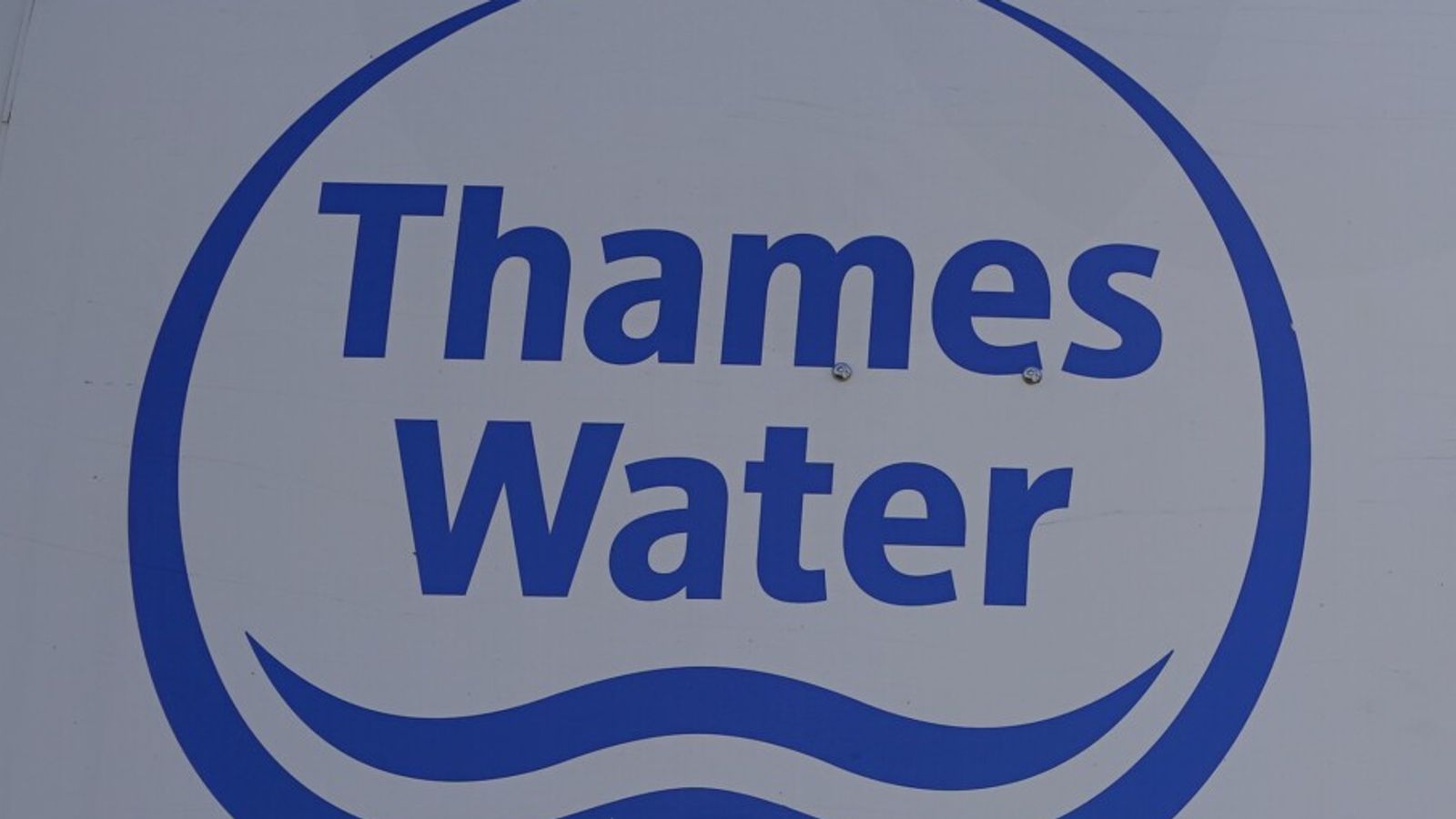The government said it is prepared for a range of scenarios amid fears Britain’s biggest water company could collapse.
Sky News has learnt that ministers and Ofwat, the industry regulator, have started to hold discussions about the possibility of placing indebted Thames Water into temporary public ownership.
Contingency plans are being drawn up amid growing doubts in Whitehall about the ability of the firm to service its £14bn debt-pile.
A government spokesperson said that the debt “is a matter for the company and its shareholders”.
But they added: “We prepare for a range of scenarios across our regulated industries – including water – as any responsible government would.
Be the first to get Breaking News
Install the Sky News app for free
“The sector as a whole is financially resilient. Ofwat continues to monitor the financial position of all the key water and wastewater companies.”
Earlier, Sky News revealed the government is discussing placing Thames Water into a special administration regime (SAR) that would effectively take the company into temporary public ownership, in the event of its collapse.
From privatisation to profits: Pressure on ‘rip off’ water industry unlikely to go away any time soon
Ministers weigh contingency plan for collapse of Thames Water
Thames Water boss Sarah Bentley resigns with immediate effect after giving up bonus over sewage spills
Such an insolvency process was used when the energy supplier Bulb collapsed in 2021, sparking concerns that it could cost taxpayers billions of pounds.
The talks within Whitehall, which involve the Department for Environment, Food and Rural Affairs (DEFRA), Ofwat and the Treasury, remain at a preliminary stage and relate at the moment only to contingency plans which may not need to be activated.
Taking Thames Water into temporary public ownership would inevitably fuel calls from critics of the privatised water industry to renationalise all of the country’s major water companies.
Thames Water serves 15 million customers across London and the southeast of England and has come under intense pressure in recent years because of its poor record on leaks, sewage contamination, executive pay and shareholder dividends.
On Tuesday its chief executive, Sarah Bentley resigned with immediate effect after criticism of her £1.6m pay packet and the company’s environmental performance.








